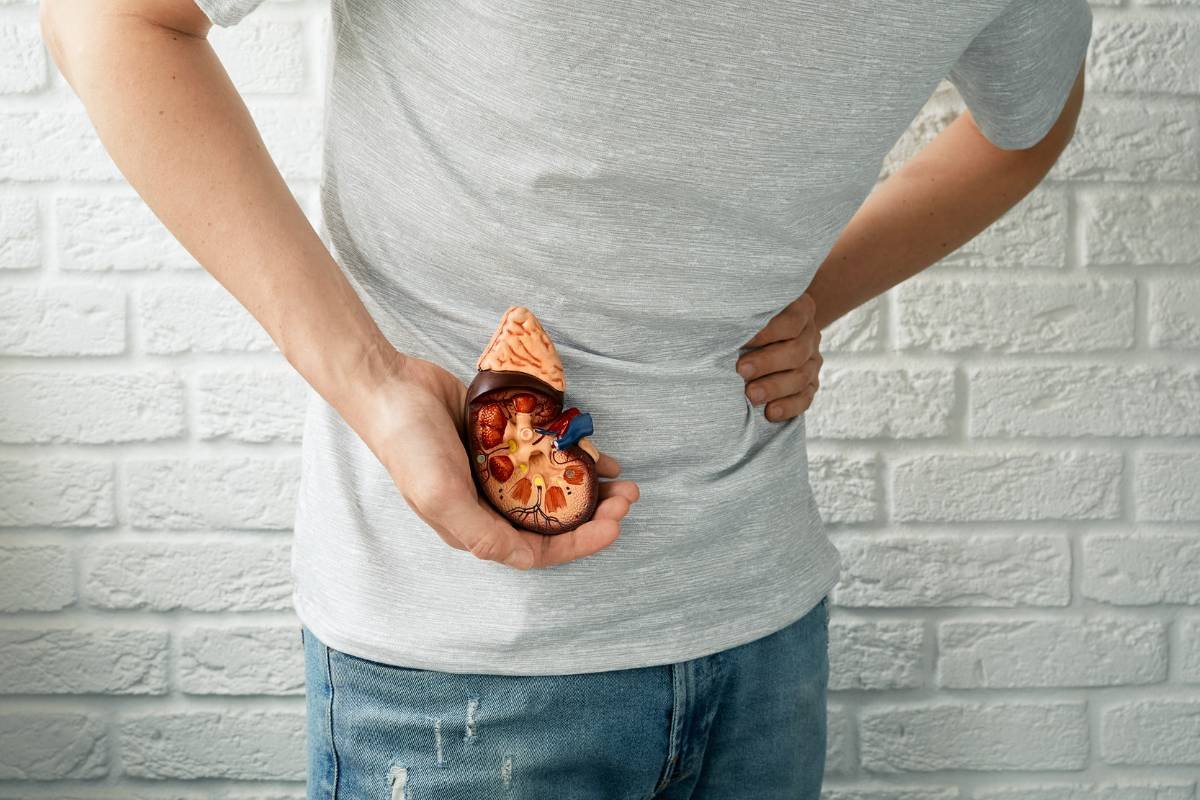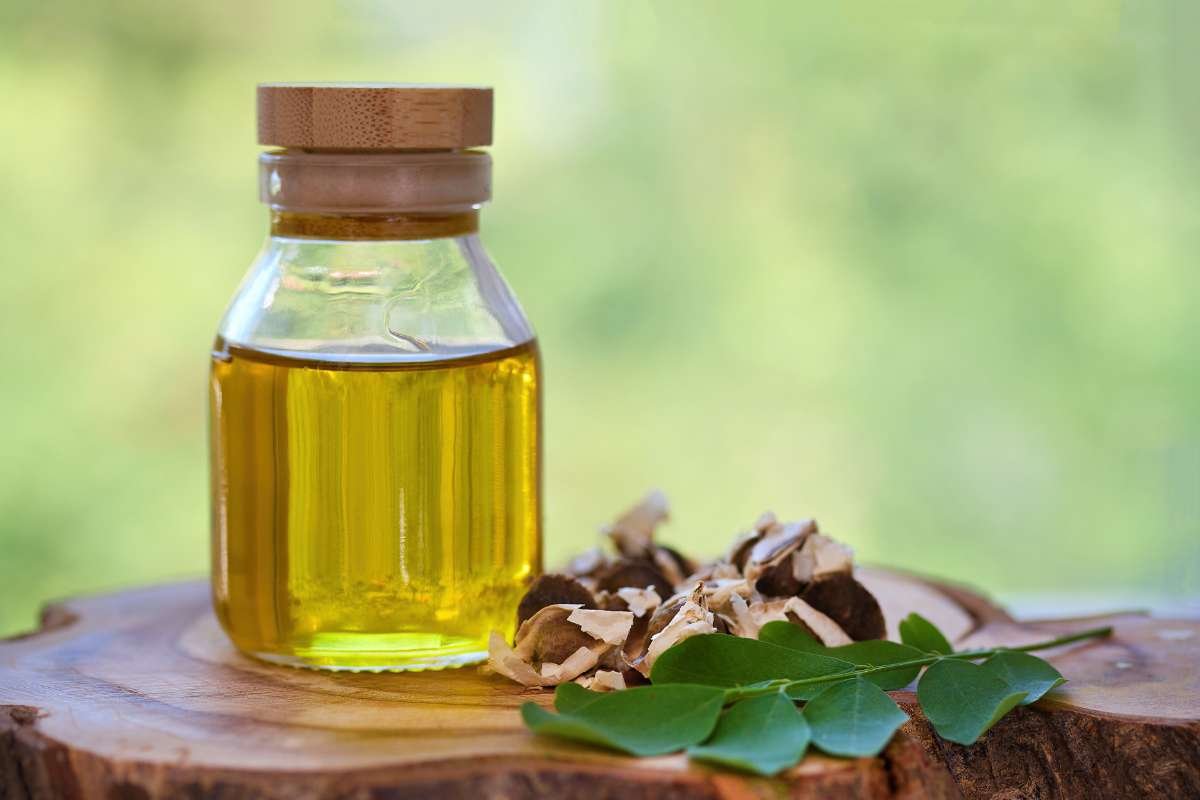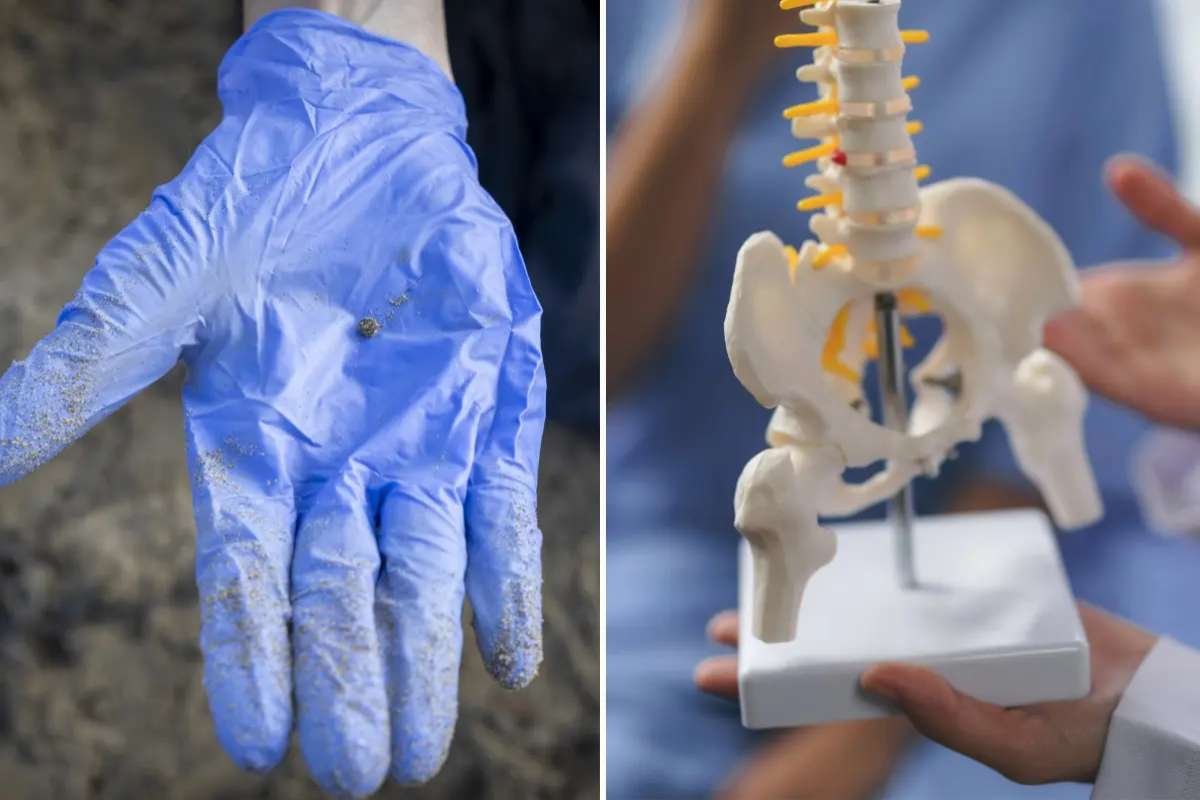A recent study published in The American Journal of Clinical Nutrition examined the case of a patient with kidney stones, highlighting the potential dangers of fad diets like the carnivore diet. Researchers warned that extreme dietary changes lacking scientific backing could lead to metabolic imbalances and an increased risk of kidney stones.
Case Study: A Patient’s Struggle with Kidney Stones
The case focused on a 61-year-old man with a personal and family history of kidney stones, gout, hypertension, coronary artery disease, and diabetes. His first kidney stone appeared at age 45, but he remained symptom-free until 55. Between 55 and 58, he passed about three stones per year, with increasing pain and difficulty.
The patient underwent multiple shock wave treatments to break up the stones. However, after nine lithotripsies, his kidneys could no longer tolerate the procedure. He was occasionally prescribed oxycodone to ease the pain of passing stones.
Analysis of his kidney stones showed that they were composed of 90% calcium oxalate and 10% calcium phosphate. Laboratory tests revealed normal citrate levels and sufficient fluid intake, with urine volume averaging around three liters daily. However, his calcium, sodium, oxalate, and uric acid levels were high, and his urine supersaturation for calcium oxalate and calcium phosphate exceeded safe limits. A CT scan showed several small stones.
Over the next two years, he continued to pass kidney stones. Further analysis found that the stones now contained a mix of calcium oxalate, calcium phosphate, and 10% uric acid. During this time, he also developed gout and high blood pressure, both of which required medication. From age 64 to 67, he did not pass any more stones, and his urine tests showed normal uric acid, pH, oxalate, and calcium levels.
The Carnivore Diet and Increased Stone Risk
At age 67, the patient switched to a diet consisting of 90% meat after watching a YouTube video claiming that the carnivore diet could treat gout. This dietary choice contradicted established guidelines for gout and kidney stone prevention.
A urine test conducted after adopting the carnivore diet revealed that while some kidney stone risk factors improved, others worsened. The patient experienced a significant rise in urine calcium and uric acid levels, both of which are linked to stone formation.
By age 68, he had stopped following the carnivore diet. He no longer passed stones and had no urological symptoms. Despite this, some risk factors remained elevated, including high urine citrate, urine urea nitrogen (UUN), and protein catabolic rate (PCR), all of which influence kidney stone formation.
How Kidney Stones Form
Kidney stones develop when minerals in urine become too concentrated and exceed their solubility, leading to crystal formation. High supersaturation levels increase the risk of stone formation, particularly for calcium oxalate, calcium phosphate, and uric acid stones.
Several dietary factors contribute to stone development. Low urine volume, high sodium intake, excessive animal protein consumption, and insufficient calcium intake can all increase the risk. Sodium leads to increased calcium excretion, while high animal protein intake raises uric acid levels and lowers protective citrate levels, creating a favorable environment for stone formation. On the other hand, drinking enough fluids dilutes urine and reduces stone risk. Proper calcium intake also helps by binding to oxalate in the gut, preventing its absorption.
Different types of kidney stones form under specific conditions. Calcium oxalate stones develop when high oxalate and calcium levels combine with low urine volume. Calcium phosphate stones occur when urine volume is low, but calcium and pH levels are high. Uric acid stones form when both urine pH and volume are low, but uric acid levels are elevated.
Studies have shown that individuals following the carnivore diet often experience a sharp increase in urine calcium and uric acid levels. Oxalate and sodium levels may also rise, while citrate levels, which help prevent stone formation, typically decline. Additionally, eliminating fruits and vegetables removes alkalizing components from the diet, further increasing the risk of kidney stones.
Recent research suggests that dietary fiber plays a role in reducing kidney stone risk by influencing gut bacteria and urine pH. The absence of fiber in a carnivore diet could contribute to gut dysbiosis, which has been linked to a higher likelihood of kidney stone formation.
Preventive Measures for Kidney Stones
To lower the risk of kidney stones, patients should reduce sodium intake by avoiding processed foods like soups and cured meats. Replacing salt with herbs and spices can help manage sodium consumption.
Limiting the intake of non-dairy animal proteins, especially red meat, and increasing the consumption of fruits and vegetables is crucial. Foods like citrus fruits, bell peppers, broccoli, and bananas provide citrate, which helps prevent calcium-based stones.
Consuming dairy products can also reduce kidney stone risk by binding oxalate in the digestive tract, preventing its absorption. For individuals with persistently high calcium levels in their urine, medications like chlorthalidone may be prescribed to help lower calcium excretion.
Importance of Evidence-Based Dietary Advice
Healthcare providers should rely on evidence from clinical trials and well-researched studies when advising patients on diet and kidney stone prevention. While social media influencers may promote certain diets as miracle solutions, anecdotal claims should not replace scientifically validated recommendations.
When patients express interest in fad diets, doctors should engage in open discussions rather than dismissing their choices outright. Using motivational interviewing techniques, physicians can explore patients’ dietary goals, educate them on potential risks, and encourage balanced nutrition based on the latest research.
Conclusion
The carnivore diet has gained popularity due to claims of rapid weight loss and health benefits. However, research suggests that this extreme diet increases several risk factors for kidney stone formation, including elevated calcium, uric acid, and oxalate levels, along with reduced protective citrate levels.
Long-term studies on the effects of the carnivore diet on kidney health are still lacking, making it essential for physicians and dietitians to educate patients about the potential dangers of extreme dietary choices. Encouraging a balanced diet rich in fluids, fruits, vegetables, and moderate protein intake remains the best approach for kidney stone prevention.







